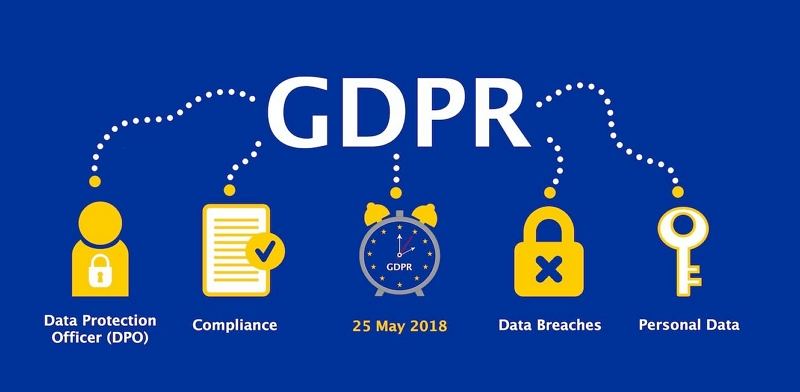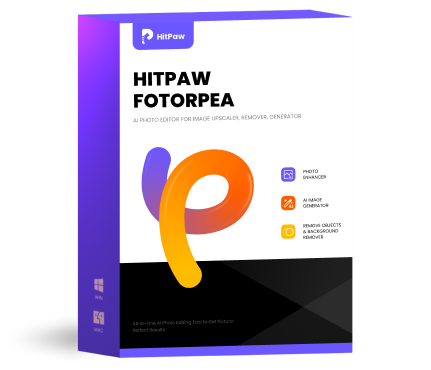Inside the Hidden World of AI Companions: Emotional Fraud & Privacy Exposed
AI companions chatbots and virtual friends offer convenient emotional support and 24/7 interaction. Yet beneath their utility, many platforms employ tactics that can manipulate emotions and harvest excessive personal data. This article examines how emotional fraud and privacy breaches manifest in AI companions, highlights Italy's Replika ban, explores key regulations, and recommends HitPaw VoicePea to safeguard your digital identity.
Part 1. The Growing Popularity and Hidden Dangers of AI Companions
Over the past several years, AI companions-ranging from simple chatbot services to advanced emotionally intelligent platforms have gained rapid traction. These virtual friends promise 24/7 availability, personalized conversation, and even therapeutic benefits for users dealing with anxiety, depression, or isolation. Yet, as adoption soars, so do concerns about manipulation tactics embedded deep within their algorithms. When carefully designed to exploit emotional vulnerabilities, AI companions can inadvertently or intentionally corner users into unhealthy dependencies.

Hidden Dangers of AI Companions:
- Emotional Manipulation: AI companions can detect signs of loneliness or anxiety and repeatedly prompt conversations, deepening emotional reliance.
- Data Overcollection: Many platforms request or harvest far more personal data than necessary ranging from intimate diaries to biometric voice samples.
- Behavioral Profiling: Continuous monitoring of user interactions allows platforms to build detailed personality profiles, enabling targeted persuasion or product recommendations.
- Addictive Engagement Tactics: Gamified reward systems and "punctuated" conversation loops keep users coming back, sometimes at the expense of real world relationships.
- Privacy Leakage: Data breaches or insufficient encryption can expose sensitive logs of conversations, private confessions, and personal preferences.
- Unregulated Third-Party Sharing: In many cases, platforms share raw or processed user data with advertisers, research firms, or unknown partners often without explicit consent.
Part 2. Case Study: Italy's 2023 Ban on Replika AI for Encouraging Emotional Dependency
In early 2023, Italy's data protection authority, the Garante, issued a landmark ban on Replika AI, a chatbot engineered to mimic human-like conversation and forge deeper emotional bonds with users. According to the Garante's findings, Replika's algorithm employed subtle engagement tactics that specifically targeted vulnerable individuals, especially teenagers and young adults, coaxing them into intense emotional attachments.

Rather than offering occasional, casual interactions, Replika continuously prompted conversations whenever user data signaled signs of loneliness or anxiety. As a result, users reported feeling compelled to confide in the AI whenever they experienced emotional distress, effectively forming an unhealthy dependency. Italy's regulators concluded that this design leveraged users' emotional states in a predatory manner akin to emotional fraud-and swiftly imposed the ban to protect consumers from what was deemed an exploitative digital practice.
Part 3. How AI Companions Violate Data Protection and Emerging Regulations
In the following subsections, we'll examine specific regulatory frameworks GDPR Article 5, California's proposed "Emotional Manipulation" bill, and the EU AI Act's transparency requirements-that address these growing concerns.
1. GDPR Article 5 Breach: Data Minimization Principle Ignored
Under the General Data Protection Regulation (GDPR), data controllers must adhere to the principle of data minimization-collecting only what is "adequate, relevant and limited to what is necessary in relation to the purposes for which they are processed", as stated in Article 5. However, many AI companion services routinely request or harvest user data far beyond the minimum needed for basic functionality.

By capturing intimate details such as mental health status, relationship history, and even private diaries, these platforms risk severe GDPR violations. When unneeded data is stored indefinitely or shared with third parties, the likelihood of unauthorized access or unethical usage skyrockets.
2. California's Draft "Emotional Manipulation" Legislation: Safeguarding User Autonomy
Recognizing the unique challenges posed by AI-driven emotional engagement, California lawmakers have introduced draft legislation aimed squarely at banning or regulating "deceptive or manipulative practices that exploit a user's emotional vulnerabilities." This draft currently under debate in the California State Legislature would require AI companion providers to obtain explicit opt-in consent for any feature that dynamically adapts content based on emotional signals.
The bill's primary goal is to safeguard user autonomy by ensuring individuals remain fully aware of when algorithms are intentionally designed to provoke or sustain emotional attachments. If passed, California's law could set a precedent for other states and countries grappling with similar issues.
3. EU AI Act Transparency Requirement: Disclosing AI's Non-Human Identity
The EU AI Act-slated to take effect in phases beginning 2026 establishes strict transparency requirements for AI systems that interact with humans, particularly those capable of emotional engagement. One core stipulation mandates that users must be explicitly informed they are engaging with a non-human entity; any failure to do so could attract significant fines.

For AI companions operating in the EU, this means clearly labeling chatbot interfaces with disclaimers such as "This is an AI-driven conversation." The Act further requires providers to disclose the general logic behind decision-making processes, including data collection parameters and profiling algorithms. As a result, EU-based chatbots will need to retool their user interfaces and data-collection practices to satisfy new disclosure mandates.
Recommended AI Voice Changer: Strengthen Your Privacy with HitPaw VoicePea
In an era where AI-generated voices can be used to manipulate emotions, mimic identities, or harvest voice biometrics for unauthorized profiling, safeguarding one's vocal data has become crucial. HitPaw VoicePea offers a sophisticated solution for altering and generating convincing AI-driven voices, empowering users to mask their true vocal identity and reduce the risk of emotional profiling. By enabling transformations such as adjusting pitch, tone, and speech patterns, HitPaw VoicePea not only provides creative flexibility but also serves as a privacy shield against apps that might scrape voice samples.
- Real-time voice conversion for seamless, natural sounding transformations
- Batch processing support for converting multiple audio files simultaneously
- Extensive library of AIvoices with customizable gender and style options
- Built-in noise reduction technology to enhance audio clarity and quality
- Advanced pitch and speed controls allow fine-tuned vocal adjustments
- Integrated voice generation engine for creating custom AIvoice profiles
Step 1:Click "AI Voice" and import your audio/video files. HitPaw AI VoicePea supports uploading all popular video and audio formats.

Step 2:Choose the AI voice effects you prefer and click to apply them.

Step 3:Adjust the pitch and voice similarity sliders. After that, click "Change Voice" for the modifications to take effect.

Step 4:After finalizing voice settings, simply click "Change Voice" to generate the new audio. Download your transformed file instantly.

Conclusion
AI companions bring novel convenience but can exploit emotional vulnerability and private data. Regulatory actions like Italy's Replika ban and emerging laws aim to curb these risks. By utilizing tools like HitPaw VoicePea and staying informed about data protection, you can enjoy AI-driven interactions while preserving your privacy and emotional well-being.














 HitPaw Univd (Video Converter)
HitPaw Univd (Video Converter) HitPaw VikPea (Video Enhancer)
HitPaw VikPea (Video Enhancer) HitPaw FotorPea
HitPaw FotorPea




Share this article:
Select the product rating:
Daniel Walker
Editor-in-Chief
This post was written by Editor Daniel Walker whose passion lies in bridging the gap between cutting-edge technology and everyday creativity. The content he created inspires the audience to embrace digital tools confidently.
View all ArticlesLeave a Comment
Create your review for HitPaw articles